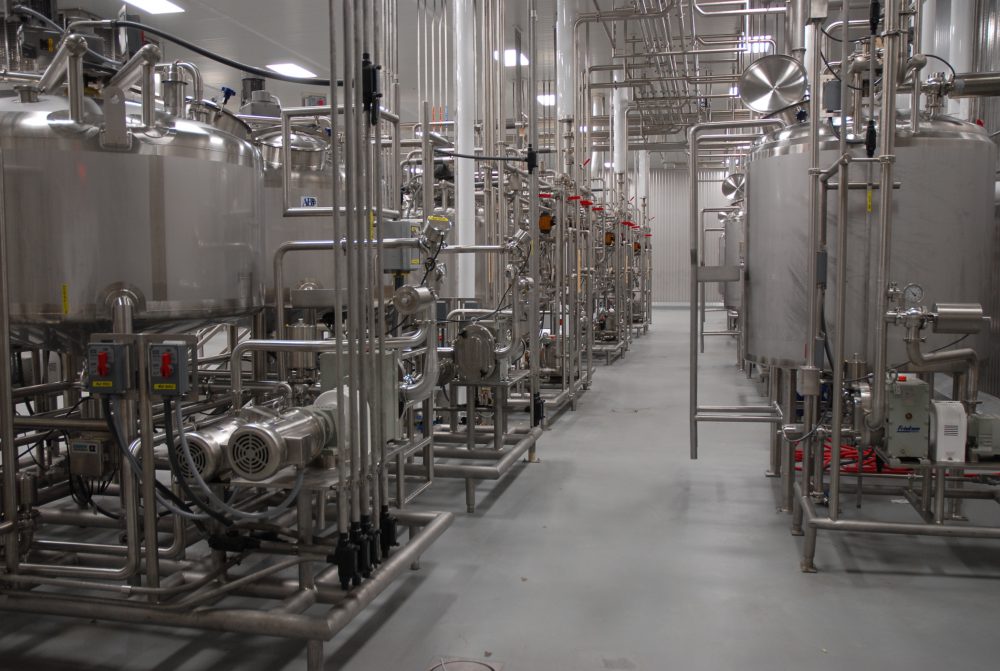Equipment manufacturers play a key role in the food safety program of a food processing plant, ensuring that equipment is designed and built to meet stringent sanitary requirements. Plant owners often spend significant time and money to acquire the right equipment with the proper sanitary construction. Yet once that equipment is designed and delivered, the next critical step is ensuring that it’s installed properly, within those same sanitary standards. If you do not carefully screen installation subcontractors, you could put your plant at risk of a food safety issue.
To minimize your risk, meet with potential installation subcontractors and conduct a thorough interview to assess their level of experience, knowledge and credentials as they relate to sanitary controls. Focus on the following key areas, using these questions while interviewing installation subcontractors. Be sure to document all your findings for future reference and comparison.
1. Past experience
- Inquire about the subcontractor’s past projects. How do they compare to your current scope of work?
- Verify that the Subcontractor estimator fully understands your project scope of work, requirements and asks the appropriate questions. The more questions an estimator asks, the more accurate the estimate will be and the level of interest the subcontractor has in doing your project.
2. Staffing
- How many people does the subcontractor actively employ? Is there enough manpower for crunch times? Avoid subcontractors who hire temporary, sub-tier workers to ensure your installation is being handled by a reliable, cohesive team.
- How does field staff communicate on site? Do they have computers, Internet access, network access, and printers?
- If there is a rotating schedule of manpower? There should be a crew overlap of at least two days to allow for adequate transfer of duties to ensure that all tasks stay on track.
- Confirm that the onsite supervisor will focus on managing the crew and not doing the actual work. The supervisor should be monitoring crew members, looking at work in progress, and verifying installation for quality standards.
- Obtain supervisor and staff resumes for your files.
3. Installation
- Find out how subcontractor materials are shipped to your site, accounted for and stored. Is there a designated individual to receive materials and handle returns?
- How does the subcontractor ensure quality workmanship? Do they provide welder qualifications and training, as well as daily or weekly onsite welding coupons, or test welds?
- What is the subcontractor’s process for verifying the accuracy and quality of work completed?
4. Documentation
- Understand the contractor’s change order (CO) process. Who is responsible for writing and submitting COs and are they submitted daily or weekly? How quickly are COs expected to be completed?
- Who is responsible for maintaining all bid, proposal and as-built drawings?
5. Knowledge of sanitary process installation
Make sure that your subcontractor understands the following standards of sanitary installation:
- The importance of the sanitary hanger system supporting the piping install
- Acceptable methods of constructing the piping system so it can be maintained and kept clean
- Proper method of hanging piping so fluids will run back to the low points and the system will drain
- Dead leg piping and how to avoid it
- Identification of an unsanitary piece of equipment verses a component or piece of equipment designed specifically as sanitary or hygienic
- Standards and specifications used in the practice of sanitary design as they relate to different industry sectors
- Process for wash downs and cleaning of equipment for sanitary facilities including cleaning clearances, construction materials and sealants, and installation requirements.




I very much agree , I have had experience in re-roofing projects and construction in facilities , that needed to be sanitary during the construction phase at many facilities, that’s where I come into play ,providing a interior protection and dust barrier walls system in place ,during this upgrading to facilities, helps in not slowing down the production of the product and gives the employees protection from falling debris.
Thanks for the feedback Benny.